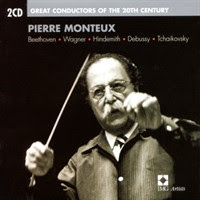Authority and power are not the same thing, a statement that comes close to being a truism. Nevertheless, so many people still manage to confuse these concepts, even when they profess to understand that they are different. This is due to a general tendency to assume that power manifests itself primarily as coercive force. Thomas Hobbes famously reduced right to might, assuming that the only source of effective political authority is the sovereign's monopoly over coercive force. Few nowadays would go along with this, believing that the exercise of power must be authorized in some fashion, either by a higher authority or by the democratically-expressed will of the citizens.
Nevertheless, when challenged to define authority and to set out its parameters, many observers still manage to identify it with some capacity at its disposal. When I first began researching my book on authority, I was quite surprised at the sheer number of people who do this. One example will suffice for now, and I will post more later.
In his 1980 book, Authority, Richard Sennett argues that authority is an interpretive process which undertakes to give meaning to the conditions of power, "to give the conditions of control and influence a meaning by defining an image of strength." This image of strength is very much a subjective one resident in the minds both of those wielding authority and of those under it. For Sennett then authority is reducible to a kind of psychological power that some exercise over others who are psychologically dependent on it. One of Sennett's case studies will serve to illustrate his approach.
Pierre Monteux and Arturo Toscanini conducted a number of orchestras in Europe and North America during their long careers. Though both enjoyed the same official position relative to these orchestras, each had a quite different personal style. Toscanini inspired terror in his players, going so far as to scream, stamp his feet and even throw his baton at them. He kept the orchestra in line largely through provoking fear of his anger.

By contrast, Monteux had a quieter way of relating to his ensemble, conveying a more relaxed sense of self-mastery and a calm assurance of being in control, a style which Sennett obviously prefers to Toscanini's. Each conductor asserted his authority, albeit in different ways. The phrases Sennett uses to describe this "authority" are telling: "relaxed, complete control of himself," "ease at being in control," "easy assurance," "inspiring terror," "aura," "strength," "superior judgment" and so forth. All of these have to do with the mental states of the people involved. What is missing is any reference to the concrete office of conductor without which an orchestra could not produce a pleasing sound.
To be sure, a conductor who is unable for whatever reason to relate successfully to his players and to command their confidence will fill the office inadequately despite his formally occupying it. This will inevitably have an impact on, among other things, the quality of the music the group as a whole is able to produce under his direction. He may acquire a reputation for being difficult to work under, and his players may put forth only a cursory effort in his behalf.
Yet at most the psychological ability to command the confidence of those under oneself must be seen as a form of power ancillary to authority, and not as the basis of authority itself. Sennett seems to have missed this. Having a commanding presence may indeed contribute to the smooth functioning of authority, yet by itself it can hardly confer that authority. The fact of the first violinist having such a presence cannot ipso facto make of her a conductor. At some point, after the departure of the current conductor, the orchestra’s board might decide to recognize her gifts and confer the baton upon her. She may end up performing more skilfully than her immediate predecessor, but her authority to do so will not have come until the board has made its authorizing decision.
Authority may be accompanied by any number of capacities ancillary to its exercise, including a commanding presence and the abilities to listen, to make sound judgements, and to persuade others of the merits of one's position. All of these enrich and enhance authority. Yet authority cannot be reduced to them. Authority is better understood as rooted in office — which is in turn rooted in the reality of our creation in God's image, as manifested in the differentiated responsibilities we bear throughout the range of life's activities.

No comments:
Post a Comment